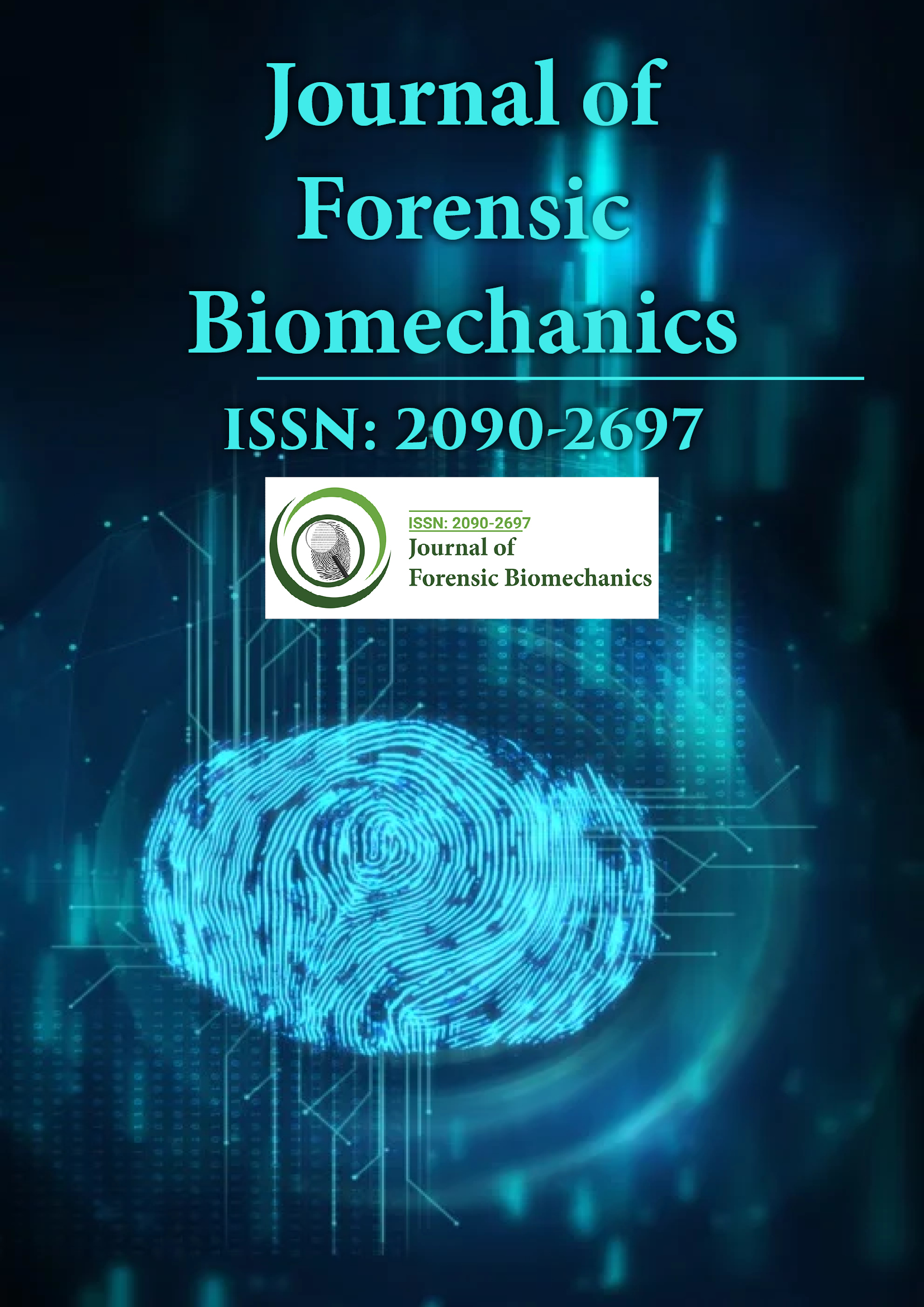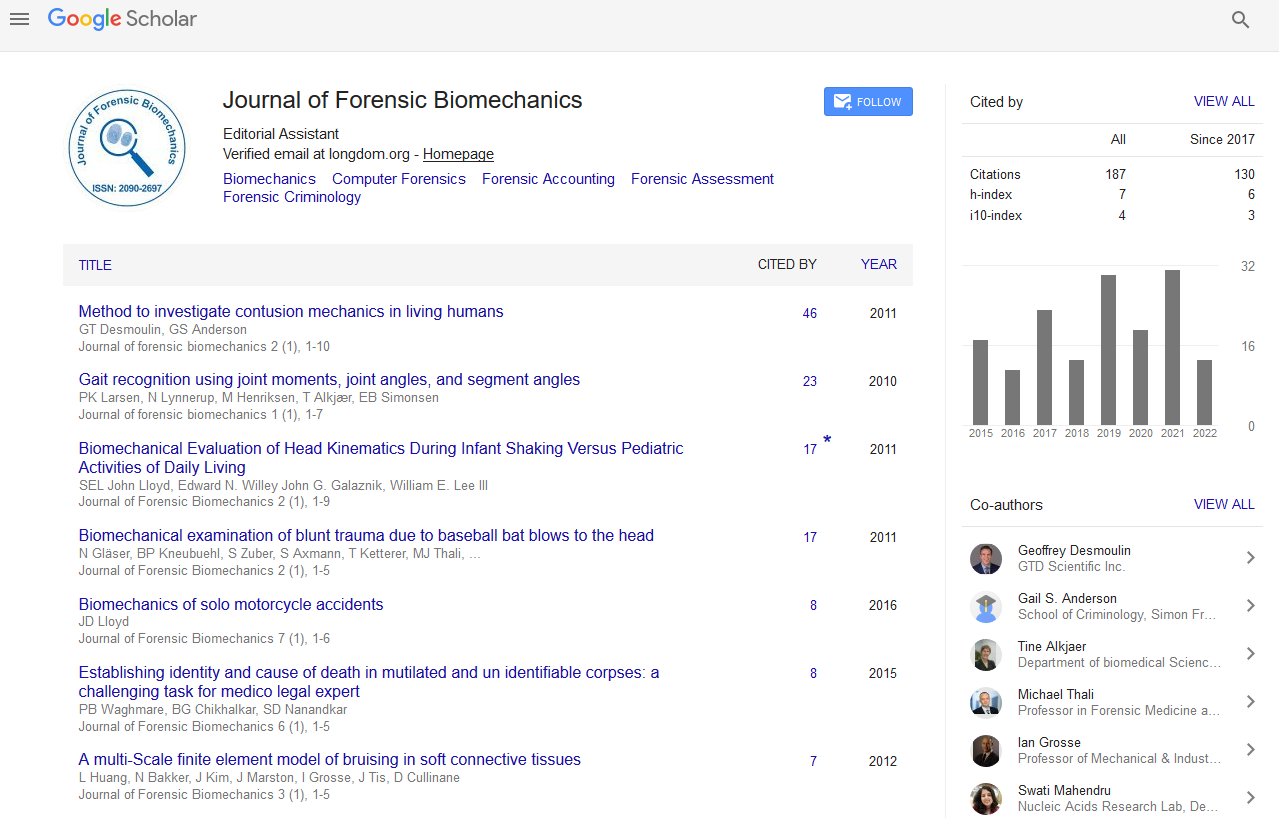Indexed In
- Genamics JournalSeek
- SafetyLit
- Ulrich's Periodicals Directory
- RefSeek
- Hamdard University
- EBSCO A-Z
- Geneva Foundation for Medical Education and Research
- Euro Pub
- Google Scholar
Useful Links
Share This Page
Journal Flyer

Open Access Journals
- Agri and Aquaculture
- Biochemistry
- Bioinformatics & Systems Biology
- Business & Management
- Chemistry
- Clinical Sciences
- Engineering
- Food & Nutrition
- General Science
- Genetics & Molecular Biology
- Immunology & Microbiology
- Medical Sciences
- Neuroscience & Psychology
- Nursing & Health Care
- Pharmaceutical Sciences
Commentry - (2021) Volume 12, Issue 4
Forensic Testing in Psychology
B. Pranesh*Received: 06-Sep-2021 Published: 27-Sep-2021, DOI: 10.35248/2090-2697.21.12.378
Description
Forensic psychology plays a significant role in psychology to questions and problems regarding regulation and the criminal system, inclusive of Law. Psychological tests use in many factors inside the investigation, prosecution, and punishment of a crime. In the legal system, only one usual method of psychology test is to check the accused person can psychologically fit to stand trial. In the USA, the legal system requires that the criminals understand the penalties; the criminal should identify that the criminal behavior is wrong.
In instances wherein the accused person suffers from overintellectual infection or excessive intellectual retardation, if the criminal cannot fulfill those standards; the willpower is made via mental trying-out. A much less unusual place utility of mental trying out is figuring out the reputation of a defendant who pleads now no longer responsible via way of means of a cause of madness. It is the venture of mental examiners (running both for the protection or the government) to record the reputation of the defendant's sanity. Although the general public hears pretty regularly, approximately, a defendant claiming it’s far an awful lot greater, not an unusual place for a defendant to be not able to face trial than to plead madness.
Another use of psychological testing in the legal system is in determining custody in contentious cases. It may involve testing one or both parents to determine custody eligibility for one or more children, which may involve testing the child to better understand the child's needs and the child's relationship with each parent.
In civil litigation, psychological testing is needed to determine the extent of harm caused by the actions of a person or company. For example, if legal proceedings include compensation for brain damage, psychological tests are used to perform to determine the extent of the damage. Within the legal system, psychological test out is likewise to decide the dangers posed via way of means of the ones who've been convicted. Tests are used to assist investigate the hazard of recidivism (reoffending), the suitability of a convict for parole, and the extent of the danger posed via way of means of an intercourse wrongdoer who has finished a sentence.
Some forms of mental trying-out that don't meet modern-day requirements remain used inside the prison system, the polygraph or lie detector, the most common test in criminal investigations. Polygraphs work with the aid of using recording blood pressure, breathing, and the electrical conductance of the skin as someone responds to a chain of questions. Changes in those physical functions are interpreted as reflecting the multiplied tension related to lying. Law enforcement externally maintains a tool referred to as a voice pressure analyzer (VSA) as a manner of figuring out if human beings below interrogation are telling the truth. This check is predicated on a device that detects the incidence of tiny tremors inside the voice that aren't audible to the listener, and might degree modifications in the superiority of those sub-audible tremors. Under pressure, those sub-audible tremors decrease. The logic of each of those strategies is similar—they depend on a series of numerous susceptible links.
Conclusion
Psychological checks use in lots of elements within the investigation, prosecution, and punishment of a crime. In the prison system, simplest one common technique of psychology check is to test the accused man or woman can psychologically in shape to face trial. Some styles of intellectual checking out that do not meet contemporary necessities continue to be used within the jail system.
Citation: Pranesh B (2021) Forensic Testing in Psychology. J Forensic Biomech. 12(4): 378.
Copyright: © 2021 Pranesh B. This is an open-access article distributed under the terms of the Creative Commons Attribution License, which permits unrestricted use, distribution, and reproduction in any medium, provided the original author and source are credited.

